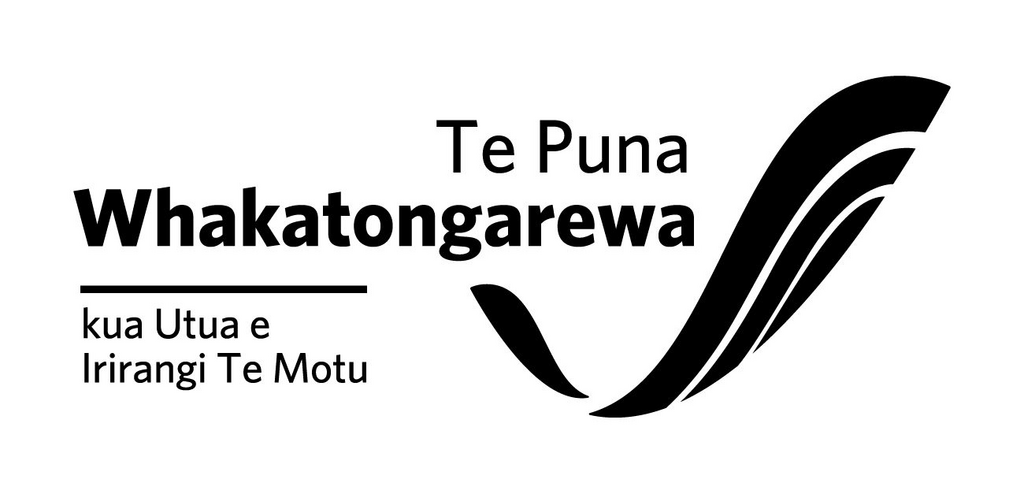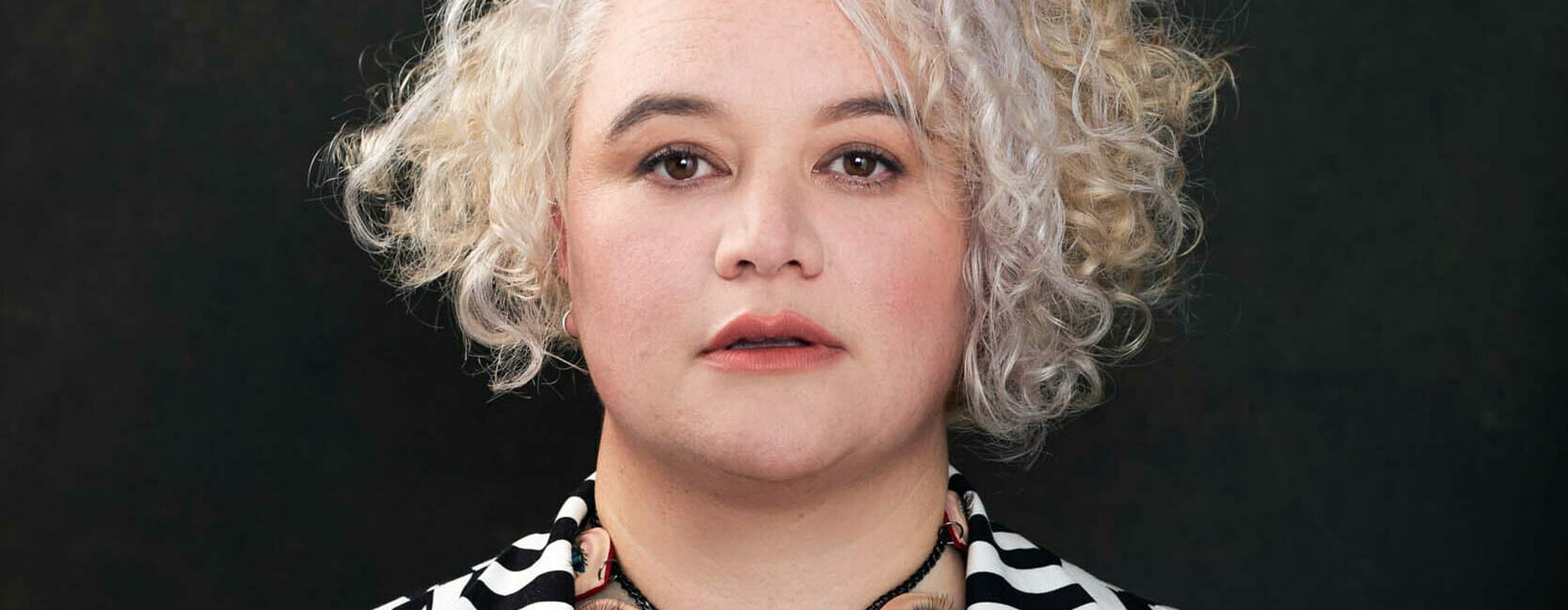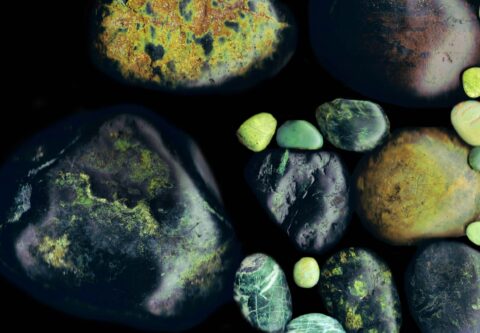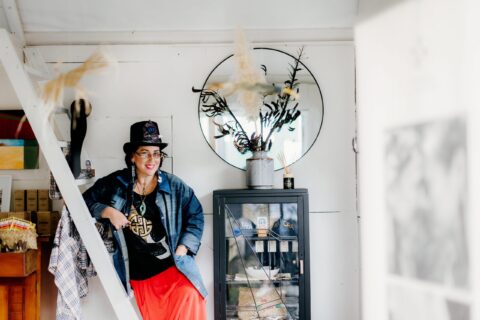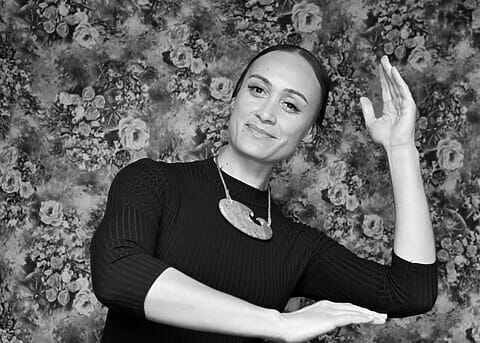Novelist Whiti Hereaka loves telling stories. In fact, she becomes so passionate when talking about her work that she starts using what she describes as “jazz hands” to express her opinions.
“I think it’s wonderful that so many people seem to connect with my books,” Whiti says, hands up, palms open. “When I’m writing away, by myself, in my little hobbit hole, I’m writing for me first and then hoping someone else will like it. I’m surprised when it goes out to the world and that my work resonates with others.”
The 44-year-old’s fourth and latest novel, Kurangaituku, was recently named as a finalist for the top fiction prize at the 2022 Ockham New Zealand Book Awards.
The authors nominated for New Zealand’s top literature prizes this year are breaking new ground, with Māori women represented in every category. In the Jann Medlicott Acorn Prize for Fiction category, which has a $60,000 prize, Whiti is nominated alongside fellow Māori wahine Rebecca K. Reilly with her debut novel Greta & Valdin. It’s a first in the history of the prestigious awards that two Māori are nominated for the top prize.
“Renowned Māori authors Witi Ihimaera and Patricia Grace have talked in the past about how lonely it was for them coming up,” says Whiti, whose iwi are Ngāti Tūwharetoa and Te Arawa. “It was pretty much only Witi and Patricia in the bookstores. It’s really exciting that there are so many more Māori writers coming through, especially Māori women. It means that our community is getting bigger and stronger.”
In her book, Kurangaituku, Whiti retells the famous folklore of Te Arawa hero Hatupatu, but from the perspective of its villain, Kurangaituku, the bird-woman.
In the traditional story, Hatupatu is out hunting and captured by a creature that is part-bird and part-woman. She imprisons him in her cave, but Hatupatu eventually escapes and is pursued by Kurangaituku. He evades her by leaping over hot springs, which Kurangaituku dives into and perishes.
“I grew up in Taupo. When we would travel to Rotorua to visit whānau, my father would tell us the story of the legend of Hatupatu. Also, in our home we had an illustrated book of the story, and the pictures of Kurangaituku were scary.
“I always wondered what her story was. Where did she come from? Why did she like birds? Her mystery intrigued me.”
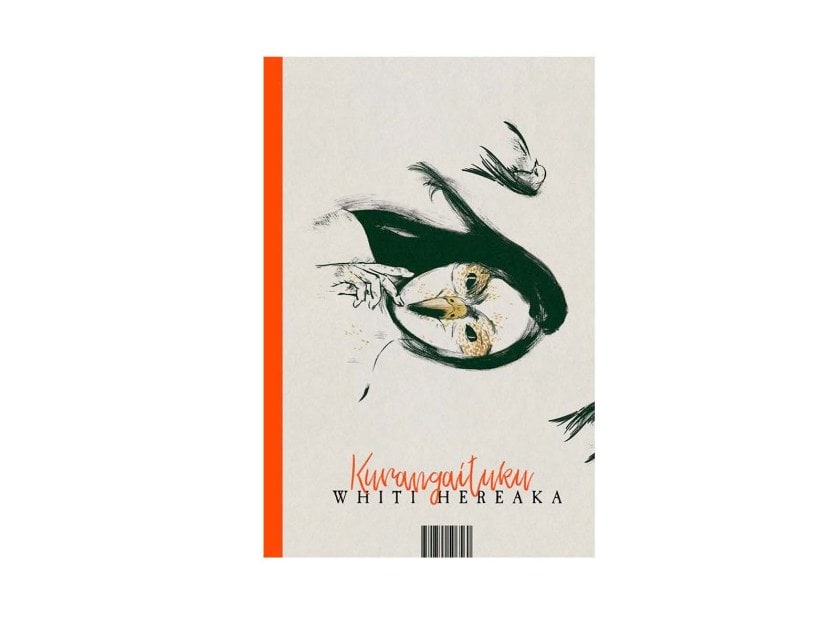
In 2013, Whiti accepted a three- month writing residency at the University of Iowa and discovered why it was so important for her to retell the story of Kurangaituku.
“I was with 35 other writers from around the world. There were women from countries like Yemen and Pakistan, who were putting themselves in actual danger because of the content of their writing. It made me think about women’s voices and how important it was to have our voices in the world, and how important it is for women to tell our own stories.”
In Whiti’s book, Kurangaituku isn’t a two-dimensional villain with monstrous traits, but a fully realised character, delving into her emotions, thoughts and actions.
“I don’t want people to think that this retelling of Kurangaituku’s story is the only retelling that is or that will ever be. I hope there will be other stories of Kurangaituku. The more we have, the stronger her story will be.”
Whiti describes this novel as her most personal; writing about a character who is entrenched in Māori legend forced her to question her own place in the world.
“I’m still a bit iffy about my own taha Māori. I grew up with some bad stereotypes of what it meant to be Māori. The education system, in particular, didn’t have great expectations for any Māori,” she says.
Whiti says learning te reo Māori is helping her form a deeper connection to her culture.
“I’m an enthusiastic learner. I’m coming to terms with the fact that whakapapa is whakapapa. I don’t need to speak te reo Māori to be Māori, but I’d like to. It’s going to be a lifelong journey.
“It’s heartening to know that my nieces and nephews are not growing up with the same hang-ups that my generation did about being Māori. I was never ashamed to be Māori, but it was hard for me to claim to be Māori for a long time, until very recently.”
She says writing Kurangaituku has helped with her healing and her acceptance.
“Because Kurangaituku is searching for her identity and her place in the world. It has helped me. I had to explore this more deeply than I had before. It made me think about what it means to be Māori.”
This is Public Interest Journalism funded by NZ On Air.
